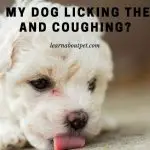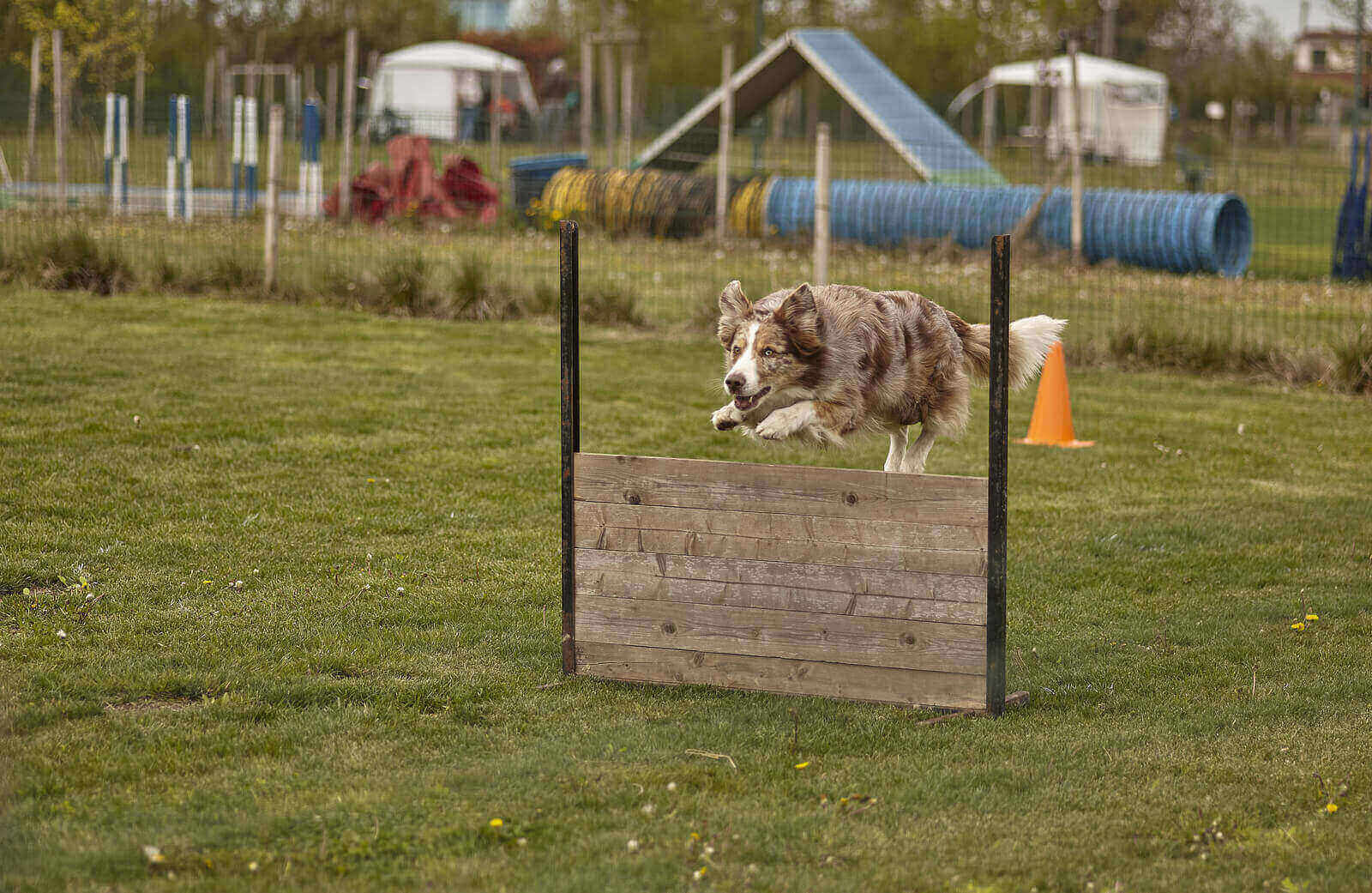If you are a dog lover and have dogs with fleas at your home, you should know about flea treatment. Fleas infest the puppies. Flea’s medicine presents in many forms, but the essential method is when you use medicine in the pipette and put the medicine in the shoulder region. It is not harmful to the dog because the dog is not able to lick the medicine. In this way, medicine works more effectively than any other way.
In this article, we will explore dog acting weird after flea medicine and the behavior of dogs after getting fleas medications. Let’s dive into the topic.

Dog Acting Weird After Flea Medicine
Fleas are parasites. Parasites are the organisms that stick to the host for food and, in return, harm them. The flea medication is used to get rid of these parasites. Flea medicine kills the attached parasites, but they have side effects as well.
There are many factors behind the dog’s perplexing behavior like wrong medication, allergic reactions, and medicine administration on wounds. Side effects make the dog lethargic after flea treatment.
Is flea medicine for dogs toxic?
Fleas are parasites. Parasites are the organisms that stick to the host for food and, in return, harm them. The flea medication is used to get rid of these parasites. Flea medicine kills the attached parasites, but they have side effects as well.
Flea medicine is known as ectoparasiticides. Ecto means outside, so for killing the external parasites, ectoparasiticides are used. These medicines kill the tick and flea. Don’t confuse it with the internal medication for parasites.
Pipette is used for flea medication. The pipette is filled with liquid and administered in the shoulder region. Then the flea started killing. But these medicines are fatal for parasites but dogs; these are not very lethal.
Many products can be used to get rid of fleas.
- Pyrethrins: it is an organic compound. An organic compound is made up of carbon and hydrogen and their derivatives. We can get pyrethrins by extracting chrysanthemum plants. This organic compound is used in different insecticides. It can kill ticks, fleas, and mosquitoes.
- Pyrethroids: it is also like pyrethrins and derived from chrysanthemum plants. Pyrethroids are used in flea medication. It is not as toxic to dogs as compared to cats. It is fatal for cats.
- Organophosphates: it is also used in the medication of fleas. They are not used in pipettes because of the high toxicity.
- Indoxacarb: Indoxacarb is used for the treatment of fleas. It is used for cats and dogs. It is mainly used for larvae of Lepidoptera like fleas and flies.
- Fipronil: Fipronil is also an insecticide, and it is broad-spectrum. This insecticide is also used for flea treatment in pets. It has low toxicity compared to other insecticides, but the ingestion and inhalation will enhance the effect of fipronil.
Dogs acting weird after flea medicine depends upon the toxicity of medicine and types of medicine.
Some dogs are okay with flea medicine because there is a different dose for a different breed. If the dog ingested a small amount of flea medicine, then it will not show uncanny behavior. Some insecticides are affecting very strongly, like pyrethroids.
Can flea medicine make my dog sick? It can make the dog sick. Permethrin is also used in flea medicine, but dogs do not like this medicine. This is the reason behind dogs acting weird after flea medicine.
Why Dogs Feel Weird after Flea Medicine
Many dogs are very well after the flea medication. It is recommended safe by the vet. The toxicity depends upon the quantity of intake—dogs acting weird after flea medicine because of many issues like allergies, wounds, unfair treatment etc.
Allergies
Flea medicine can cause an allergy to your dog. Allergens can be in medicine, food, and cleaning solutions. Wrong medication for allergy can be fatal for dogs. The ingredients that are used in the flea medication can be allergens for dogs. That is why dogs are lethargic after flea treatment.
Wounds
If there is a wound on the dog’s skin near the region where you have administered the pipette, then it causes toxicity. Dogs become reactive and change their behavior. The medication can spread in the whole body through the bloodstream when you apply the medication on wounds, then dogs acting weirdly after flea medicine administration.
Wrong Flea Medication
Why does my dog act weird after flea treatment? Wrong medication can be fatal for a dog, and it makes the dog lethargic after flea treatment. If you give the wrong medicine, then the dog is acting weird after flea medicine. The medicine of fleas is different for different dogs. The medicine is according to the dos size and weight.
If you give the medicine to a small-sized dog designed for large dogs, the dog shows different behavior. It disturbs the whole-body metabolism. That is why the vet recommends medicine by observing the age, weight, size and blood lineage.

Ingestion of Flea Medicine
The vet recommends that the medication administration is in the region where your dog could not lick. The flea medicine in the wrong place can cause serious problems. That is why dogs are acting weird after flea medicine. The dogs do not like flea medicines. They don’t like to eat or lick.
Fur licking is the behavior of dogs, so they can quickly lick the medicine when administered in the wrong place. That is why the administration of flea medicine in the right place is essential.
What Should You Do If Your Dog Is Sick After The Flea Treatment?
The wisest and essential thing is consultation with a doctor if the dog is freaking out after flea treatment. The dogs that are allergic to medicine act differently after the treatment. Many dogs show the symptoms of sickness, but not all do.
Dogs get sick after flea treatment because of the toxicity of medicine or unfair treatment. Dogs restless after flea treatment, then the simple restlessness can convert into severe symptoms like fatigue, vomiting, and lethargy.
It is challenging for the dog to diagnose the cause of the disease on a phone call. Consult with your vet and take the dog along with you. Then, the vet will be able to diagnose and treat the dogs. If the powder and sprays are used to kill fleas, you should wash the dog thoroughly with detergents. In this way, you can remove the harmful medicine from the dog’s skin, irritating the dog.
Dog vomit after flea treatment – dogs started vomiting after the flea medication. Check the vomit of the dog whether the pill is present in it or not. If the tablets are present in the vomit, then don’t give him another dose of medicine. Contact your vet.
Frequently Asked Question (FAQs)
What Are The Side Effects Of Flea Medicine?
There are many side effects of flea medicine if the dog licks the medicine. Is your Dog acting weird after flea treatment? Dogs don’t like to eat flea medicine. That is why dogs are going crazy after flea treatment. The side effects of the flea medicines are
- Fatigue
- Vomiting
- Cramps
- Hyperactivity
- Asthma
- Tremors
- fast breathing or Short
- Tingling
- Pupil dilation
- Itching
- Red skin or rash
- Excessive urination
- Hypothermia
- Diarrhea
- Excess salivation
- Seizures
- Fever
Dogs act weird after flea and tick medicine, but some dogs don’t show these symptoms because of the breed and body size.
Final Verdict on Dog Acting Weird After Flea Medicine
Dog lethargic after flea treatment because of the toxicity of medicine. The vet recommends that the administration of the flea medicine be in the right place where the dog cannot lick the medicine.

There are many reasons that the dog is lethargic after flea treatment. Allergic reactions, medicine on wounds, wrong treatment, and ingestion of flea medicine are the reasons behind the uncanny behavior of dogs.

Welcome to Learn About Pet. My name is Rajkumar Ravichandran and I love all pets, travel, and amazing food. I write about my passion and personal experience caring for multiple pets in this blog! ❤️
Post Disclaimer
DISCLAIMER: THIS BLOG OR WEBSITE, "Learn About Pet", DOES NOT PROVIDE YOU WITH MEDICAL ADVICE AND IS NOT A SUBSTITUTE FOR MEDICAL ADVICE. ALWAYS GET IN TOUCH WITH YOUR PERSONAL VETERINARIAN AND USE INFORMATION HERE AS GENERAL ADVICE.
The information, including but not limited to, text, graphics, images and other material contained on this website are for informational purposes only. No material on this site is intended to be a substitute for professional veterinary advice, food recommendation, diagnosis, or treatment. Always seek the advice of your veterinarian or other qualified health care provider with any questions you may have regarding a medical condition or for pet food related questions.







